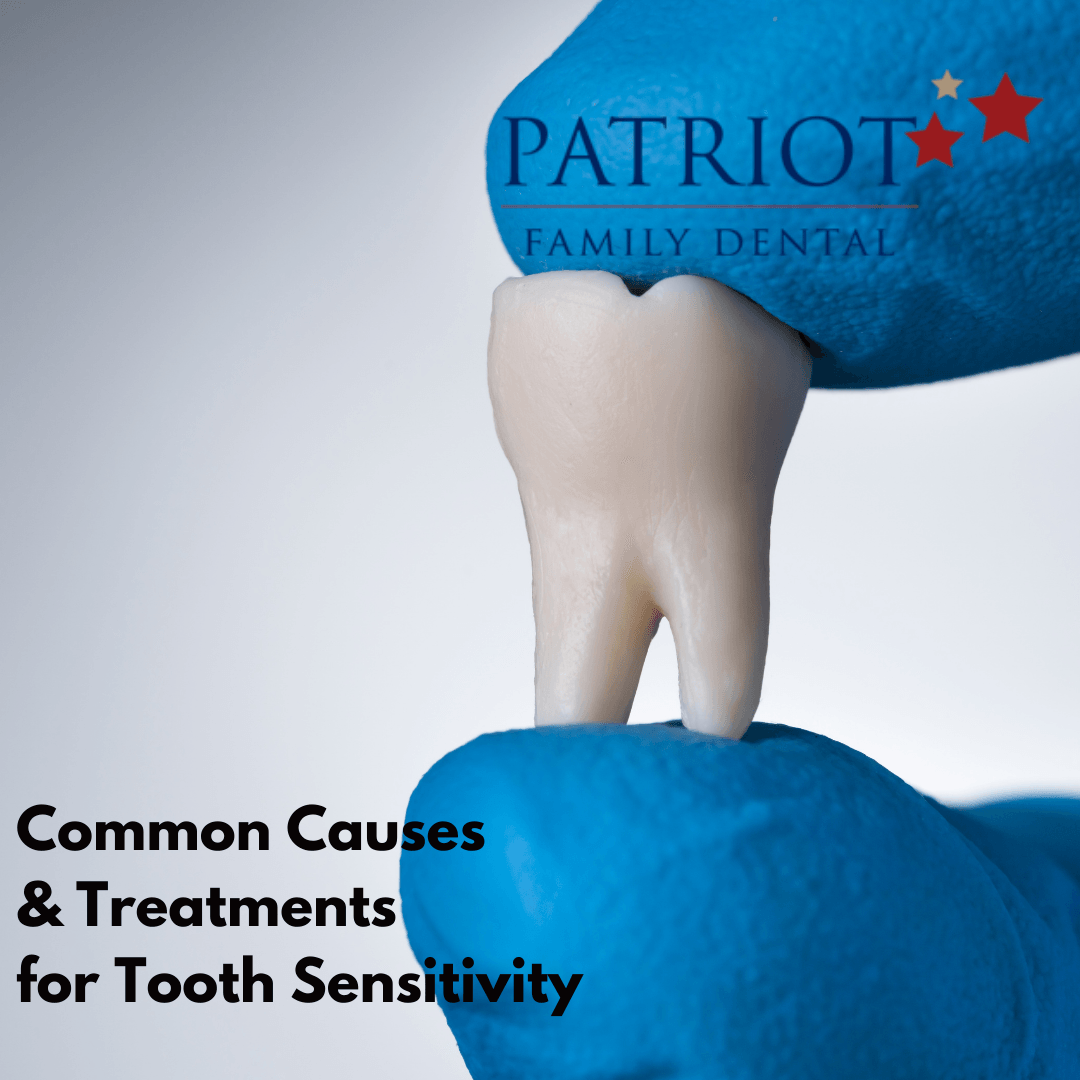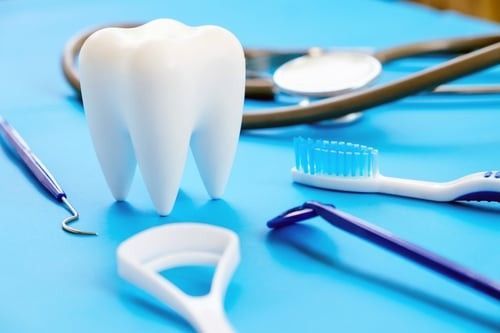Common Causes & Treatments for Tooth Sensitivity
Common Causes & Treatments for Tooth Sensitivity

Do you avoid eating ice creams and drinking hot soups for fear of a stinging toothache? Pain or discomfort while eating these foods could occur because of tooth sensitivity that is triggered when teeth come in contact with very hot, cold, sweet, or acidic foods and drinks.
Tooth sensitivity, also known as “dentin hypersensitivity,” could affect anything between one tooth or all your teeth. It could be a temporary or a chronic problem, but both can be treated with the right dental care and hygiene. Knowing the exact cause can help you get the right treatment. Being aware of the foods that trigger the pain and discomfort or any other reason that causes toothache will let you know when to consult the team at Patriot Family Dental.
Causes of Tooth Sensitivity
Besides extreme temperatures, several factors lead to tooth sensitivity. Knowing these could help you learn how to tackle tooth sensitivity.
1. Thin Tooth Enamel
The tooth enamel is the thin outer layer of the tooth. It covers the crown, which is the part of the tooth visible outside the gums. The enamel protects the teeth while chewing, grinding, biting, etc. It also shields the tooth from extreme temperatures and chemicals. However, although it is hard, the enamel can crack or get worn out due to overbrushing. The enamel also gets worn out from grinding the teeth at night or eating or drinking acidic foods and beverages. The chipped or worn-out enamel causes pain and discomfort while eating hot, cold, sweet, or acidic foods as the foods get through the cracks or tiny holes in the enamel and affect the nerves inside.
2. Acid Reflux
Acid reflux or heartburn, also known as Gastroesophageal Reflux (GERD), causes acids in the stomach to flow upward and into the esophagus. Over time, the frequent vomiting caused by GERD damages the tooth enamel and causes the teeth to become sensitive. Bulimia is another condition that causes frequent vomiting and leads to damaged enamel and tooth sensitivity.
3. Gum Recession
Gum recession occurs when the gum tissue that surrounds the tooth wears away, exposing the root of the tooth. Gum recession causes gaps between the tooth and the gum line, which leads to the build-up of bacteria. This damages the tooth and causes tooth sensitivity.
4. Tooth Decay
Broken teeth or worn-down crowns leave the dentin exposed and cause tooth sensitivity. Dentin is the layer just beneath the enamel. When a tooth decays, the dentin is exposed to disease-causing bacteria, which leads to sensitivity in that tooth. Tooth decay causes sensitivity only in the teeth that have decayed or in the region around those teeth.
5. Dental work
Dental procedures, such as fillings, crowns, or teeth bleaching leave the teeth feeling sensitive. However, this is temporary and usually subsides after a few days.
Treatments for Tooth Sensitivity
If you suffer from tooth sensitivity, it is ideal to consult your dentist at the earliest. They will check for cavities, gum recession, or loose fillings that could cause tooth sensitivity. Your dentist could also do a thorough cleaning and touch the teeth using dental instruments to check for sensitivity. They might order an X-ray of your teeth to check for hidden cavities that could be causing the tooth sensitivity.
Tooth sensitivity is easily treatable with changes in dental care and hygiene and a regular dental check-up.
1. Switch to Toothpaste Made for Sensitive Teeth
In case of mild tooth sensitivity, over-the-counter dental treatments can help reduce the discomfort. Opt for a toothpaste that’s specially made for sensitive teeth, as it contains ingredients that fill up the holes in the enamel and protect the teeth. The desensitizing ingredients present in this toothpaste also prevent discomfort and pain.
2. Use a Soft Toothbrush and Change Your Brushing Technique
A soft toothbrush is ideal for people with sensitive teeth, since soft bristles do not damage the enamel and thus protect the teeth. A gentler brushing technique is also important, as hard brushing leads to wearing out of the enamel. Gentle brushing also maintains gum health.
3. Mouthwash
If you are suffering from sensitive teeth, always choose an alcohol-free mouthwash. They prevent irritation of the teeth and reduce sensitivity.
If tooth sensitivity persists even after making these changes, it’s important to talk to your dentist, who may suggest the following:
● They may suggest using prescription toothpaste or fluoride gels and mouthwash to provide relief from pain and discomfort while eating.
● Your dentist could also help diagnose any underlying cause, such as GERD or bulimia. While GERD or acid reflux can be treated using acid reducers, bulimia will require psychiatric treatment. Treating these conditions will prevent nausea and vomiting and protect the teeth.
● If gum recession is the cause of tooth sensitivity, then your dentist may suggest a gum tissue graft or gingival graft. It is a quick and simple surgical procedure carried out by a periodontist or a gum specialist.
● Besides this, you can try reducing your stress levels, which will prevent you from grinding your teeth at night. Your dentist may recommend a mouthguard. Mouthguards are worn to protect your teeth from grinding or clenching while sleeping. It keeps the top and the bottom teeth separated so that they don’t get damaged if you grind or clench your jaws in your sleep.
Treat Tooth Sensitivity in Clarksville
If left untreated, sensitivity can worsen over time and cause complications. If you are experiencing pain while eating hot or cold foods, then consulting a dentist is crucial. It will help prevent further complications and permanent damage to your teeth. If you have experienced any of the symptoms of tooth sensitivity or cavities, or if you have observed your gums receding, then visit us at Patriot Family Dental in Clarksville, TN. Tooth sensitivity is easily treatable. Book an appointment today!











